FORT CARSON, Colo.---The spouses of deployed Soldiers learned about the history and culture of Iraq during a cultural awareness class held at Fort Carson April 15 as a way of better understanding what their Soldiers face during deployment.
The spouses were educated in traditions, food, customs and important points in the region's rich history.
Alaa Azim, cultural-political adviser, 4th Infantry Division, offered the class with the hope that spouses would gain a better understanding of not only the region, but the people of Iraq as well; a people who are comprised of many nationalities and tribes thanks to a long history of conquest and assimilation.
Many ancient cultures once occupied this land, a part of the Middle East known as the "cradle of civilization." From the Mesopotamians and Sumerians, to the Romans and Persians, famous leaders such as Nebuchadnezzar and Alexander the Great once ruled over its people.
During the presentation, Azim showed a slide that stated, "We have to convince them that we are there to help, but to do so we must know their culture. It is easy to win the war. It is not easy to win the support of the Iraqi people. We look at the world from our own cultural foundation. To win the support of the Iraqi people we must look at the world from their cultural foundation."
Azim feels that by educating spouses about Iraq, they can not only value the role their Soldier plays, but also be better prepared mentally for that Soldier's deployment.
"If the Family members don't understand what their Soldiers have to go through in Iraq, they would be more worried. But by seeing what (they are) doing over there, they will appreciate what (they are) doing (even more)," said Abdelazim.
The class also educated spouses about the differences in perception between American culture and Iraqi culture. Azim said things as simple as hand signals and body language can mean completely different things in both cultures, and can quickly make a peaceful situation dangerous.
In Iraq, to show the bottom of one's feet is considered an insult, as is not filling a glass of tea to the very top. These things seem minor to an American, but not to an Iraqi.
Not filling the glass to the top when someone visits you is a gesture that means you want a person to leave and is a slight that many Soldiers may not know about when visiting the homes of Iraqis.
Azim said spouses could help educate their Soldiers by learning as much as possible about the differences and passing that knowledge along.
Sandra Smith, spouse of Spc. Michael Smith, 1st Battalion, 22nd Infantry Regiment, 1st Brigade Combat Team, 4th Infantry Division, who attended the class, said she plans to speak to her husband about what she learned.
"The knowledge of how their culture (works), making sure to get that information to my husband and saying 'don't do this, but do that'," said Smith.
Azim said having a cultural awareness of Iraq can lead to five main objectives - It will help win the trust of the people who the Soldiers are protecting, help gather intelligence, make friends, provide a common ground of understanding, and will make the Soldiers and spouses roles easier.
"I am hoping they understand how important their (Soldiers) are to us and to the Iraqi people, to (see them) as Soldiers, and to (see) the Iraqi people as people.
During the class, spouses also had a chance to eat traditional Middle Eastern foods and watch a presentation of an authentic belly dancer.
Azim ended the class by asking the spouses to continue educating themselves by visiting local libraries, and learning as much as they can about Iraq, its people and its culture.
He said with this knowledge spouses can empower both themselves and their Soldiers, something that can eventually lead to a better understanding between the two cultures.
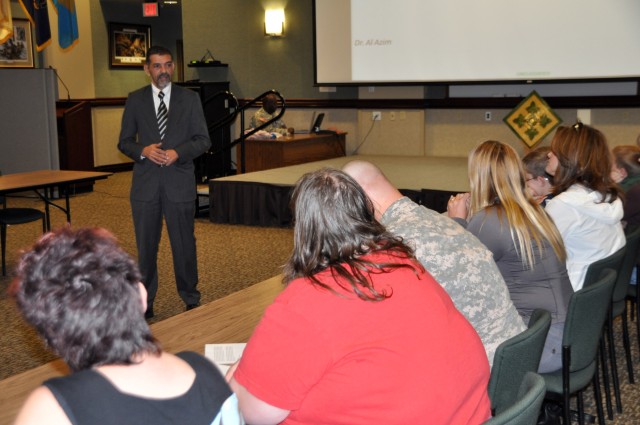
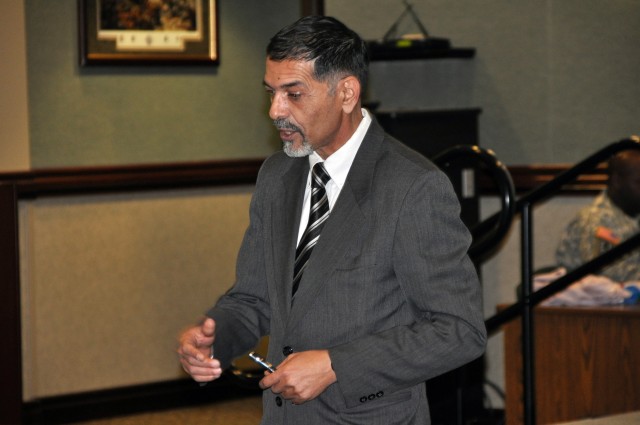
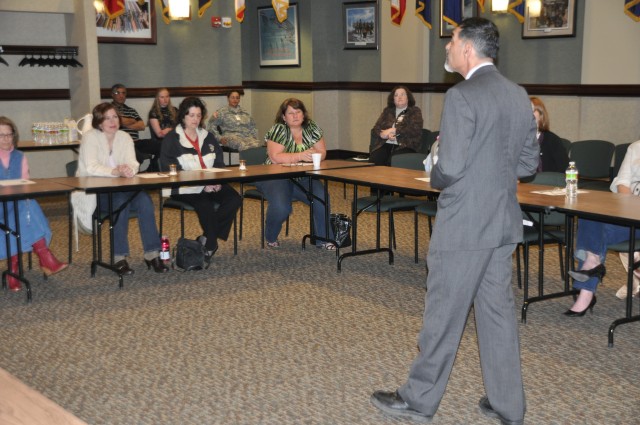
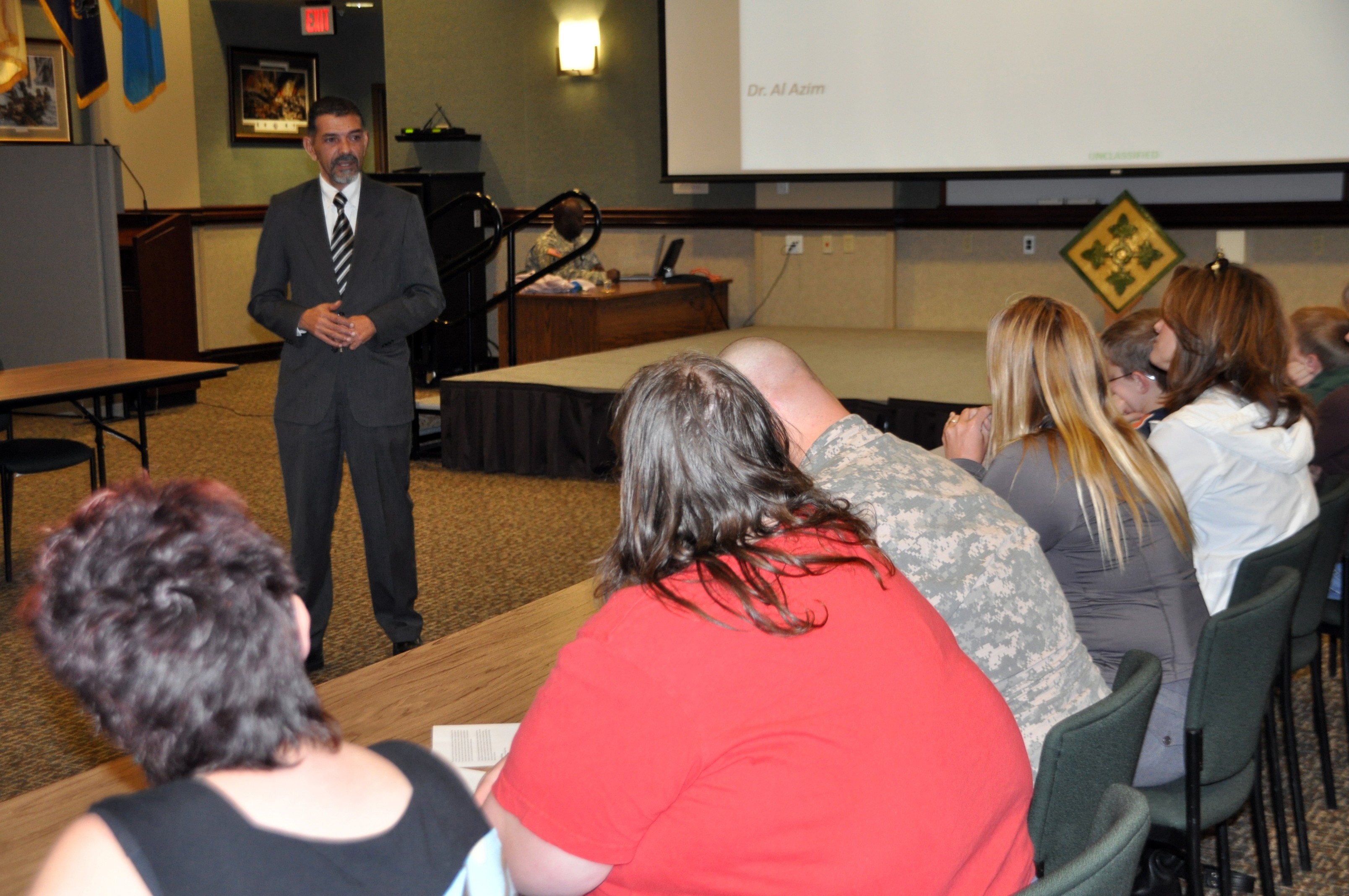
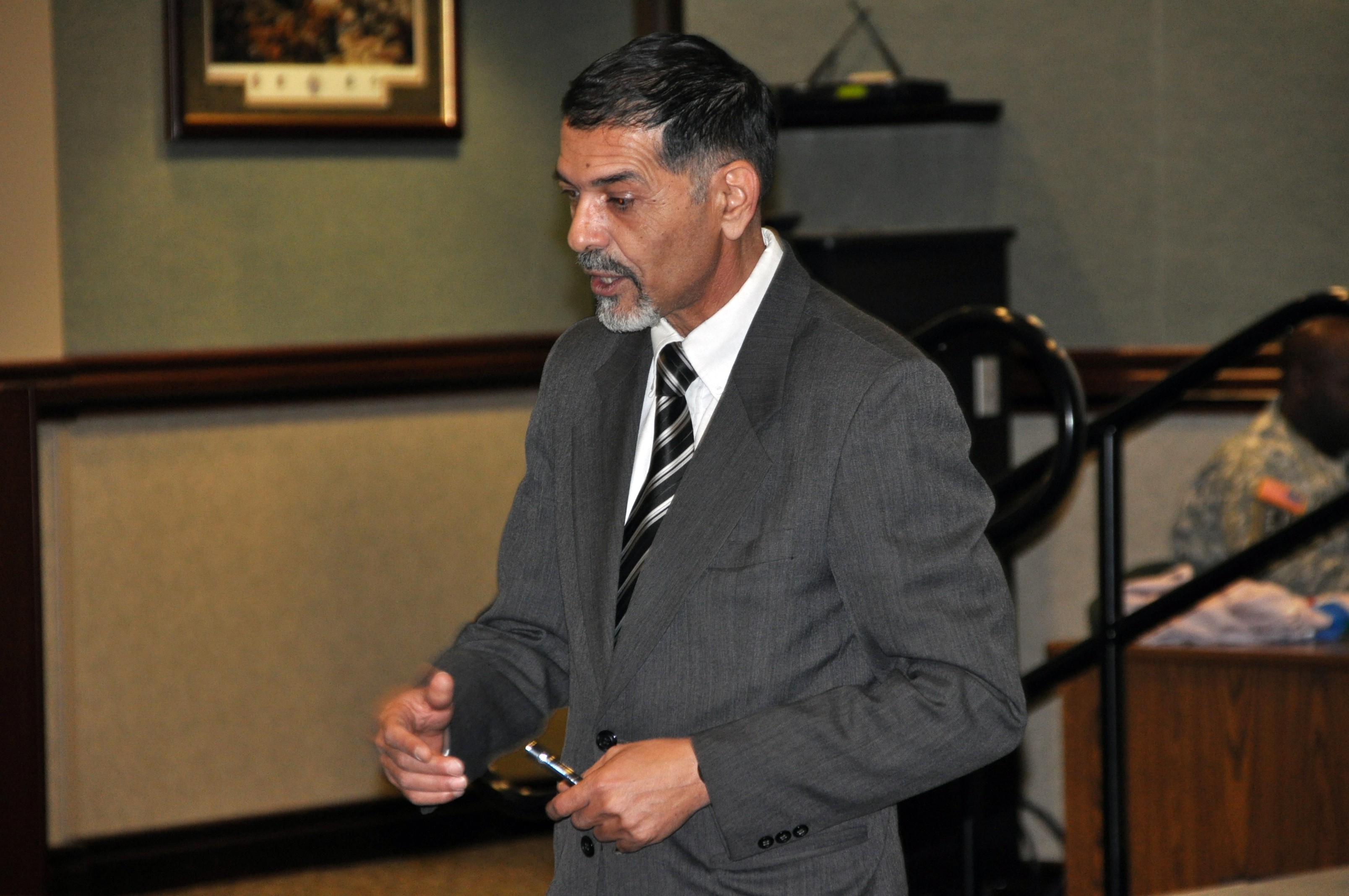
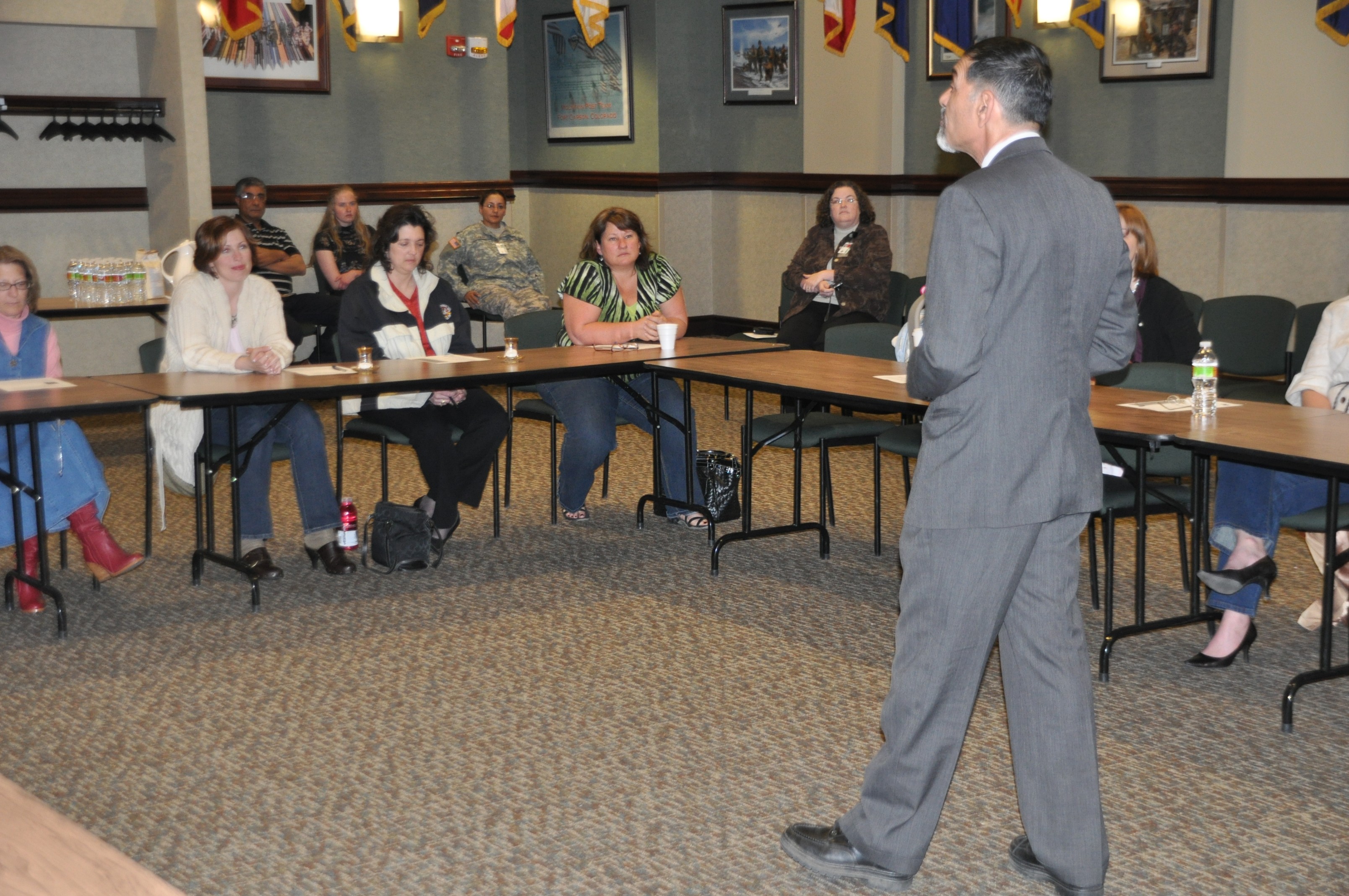
Social Sharing